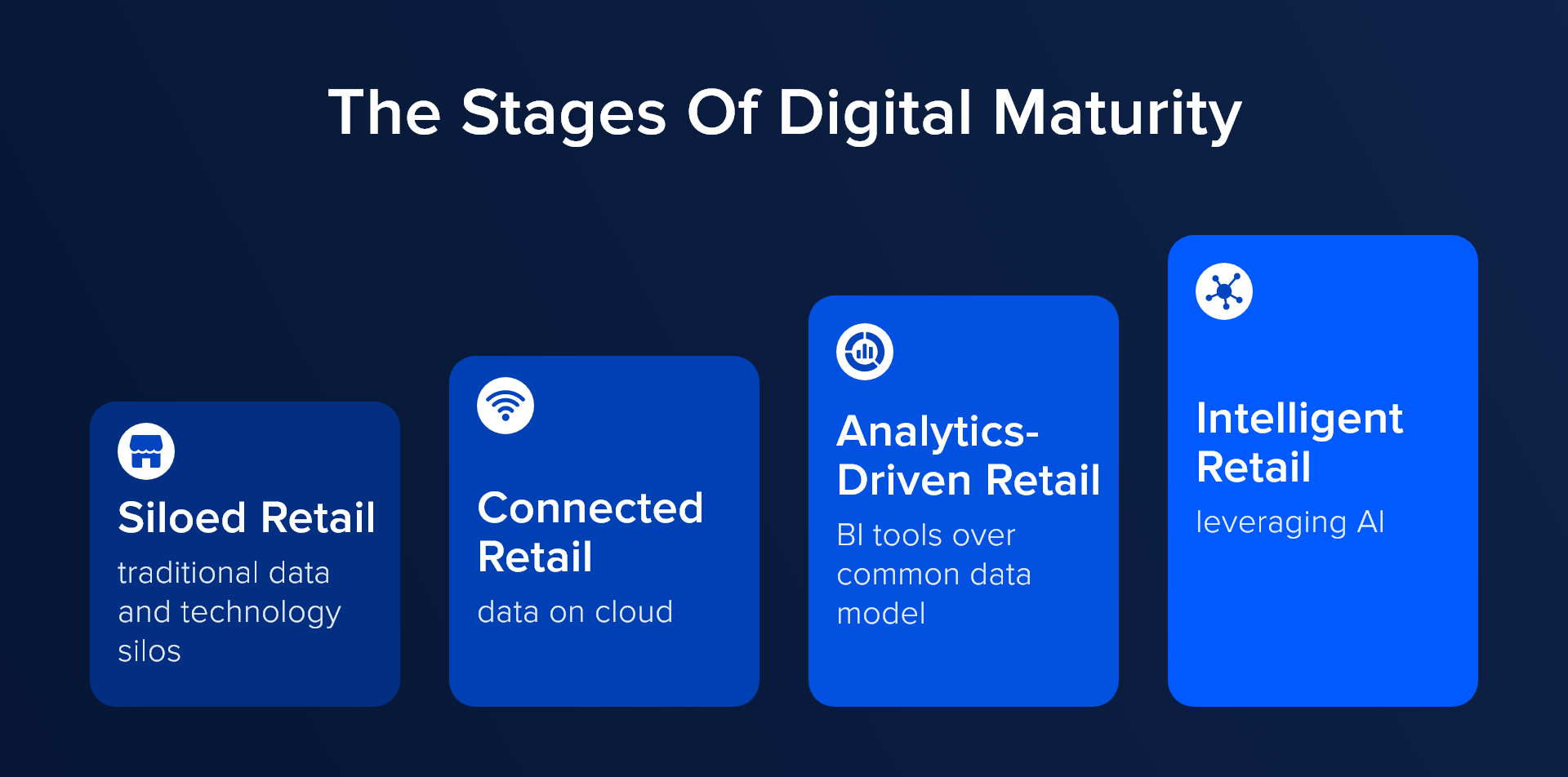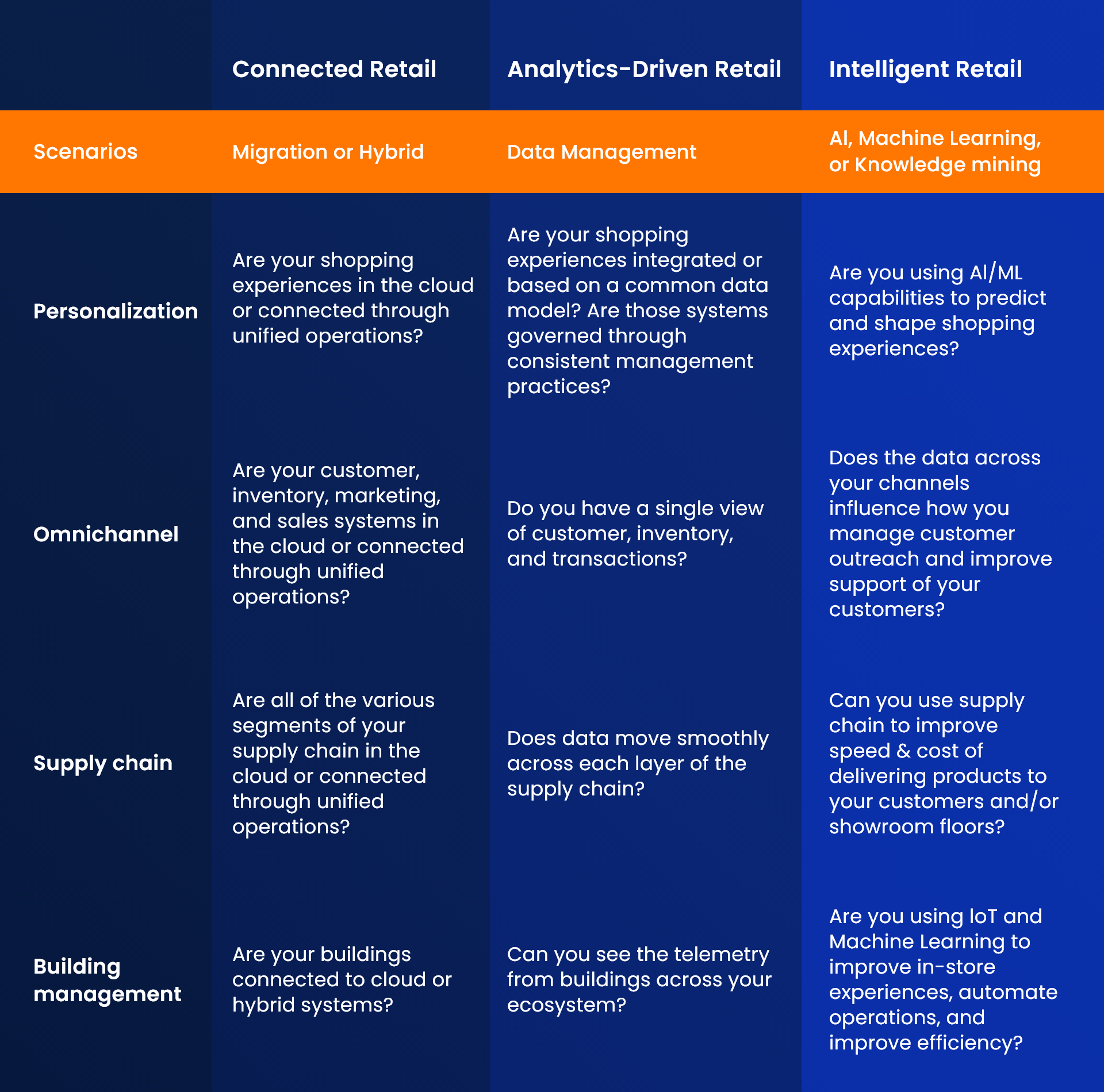Retail today is migrating towards a data-driven online business model for better connectivity, security, and resilience to offer innovative solutions at a measly cost. Globe News Wire report indicates that the retail cloud market is anticipated to reach $58.67 billion by 2027, with a remarkable Compound Annual Growth Rate (CAGR) of 16.7%. Cloud computing solutions help retail businesses to ditch the overhead, unify customer data, and unlock the power of personalization with the cloud.
Cloud Computing Solutions for Retail Processes
Price management
Retailers face a constant challenge of balancing competitive pricing with healthy profit margins. Traditionally, this involved manual data analysis, often leading to inaccurate results and missed opportunities.
Cloud computing solutions for retail changes the approach. Cloud platforms gather and analyze data from various sources. Competitor pricing is monitored in real-time, identifying trends and opportunities for adjustments. Historical sales data is analyze for past sales patterns to understand demand fluctuations and price sensitivity.
Cloud-based tools can automatically identify optimal pricing based on pre-defined parameters. Real-time pricing recommendations are generated based on competitor activity, market trends, and inventory levels.
Inventory management
Cloud-based systems provide instant access to accurate inventory levels, including location, quantity, and product details. Demand fluctuations are addressed based on historical data, seasonality, and market trends, ensuring the right products are in the right place at the right time.
Data from stores, warehouses, and online channels is consolidated over a single platform breaking down data silos. This allows automation of manual tasks like order fulfillment and purchase orders, freeing up staff for higher-value activities. Advanced analytics helps to identify optimal stock levels for each product and location, reducing unnecessary holding costs.
Personalized Retail Experience
Cloud helps retailers craft personalized experiences that delight customers and boost sales. Cloud platforms break down data silos, aggregating customer information from various sources (purchases, browsing history, loyalty programs) into a single, unified view. Advanced algorithms leverage customer data to generate highly targeted product recommendations.
Data-driven marketing campaigns target specific customer segments with relevant messages and offers. Customers see consistent product recommendations, promotions, and loyalty rewards regardless of how they interact with your brand. Cloud facilitates rapid A/B testing of different personalized experiences. Cloud-powered omnichannel retail is not just about technology; it’s about a holistic approach to customer experience.
Planning for Cloud Adoption in Retail
Embracing the cloud sparks a digital revolution in retail. Move beyond traditional project planning; structure initiatives into phases, aligning with the Retail Cloud Maturity Model. This strategy guarantees a seamless shift towards connected, analytics-driven, and intelligent retail experiences.

Connected Retail
Enhance your migration process with diverse scenarios for achieving connected retail maturity. Integrating hybrid and multicloud options is common, providing hosting flexibility. Explore the One Migrate approach and the hybrid/multicloud introduction for insights.
Analytics-Driven Retail
Leverage the cloud to standardize, integrate, and manage data, transcending limitations of siloed or connected retail setups. The Data Management scenario establishes processes for enterprise-wide data management, enabling centralized analytics.
Intelligent Retail
Unleash analytics and connected applications for intelligent customer, employee, and partner experiences. Implement cloud-first approaches like AI, Machine Learning, or Knowledge Mining for enhanced capabilities.
The following technology platform scenarios can help to broadly think about the scope of cloud adoption in retail. These scenarios incorporate detailed program plans essential for achieving the target horizon.

Cloud Computing Trends Shaping Retail Operations
In the ever-evolving retail landscape, Cloud Computing emerges as a pivotal force driving industry metamorphosis. Key trends shaping the retail sphere include:
Omnichannel Experience
Cloud solutions seamlessly integrate inventory, order management, and customer data, ensuring a cohesive and user-friendly shopping journey across online and physical stores.
Inventory Optimization and Supply Chain Efficiency
Cloud-based solutions optimize inventory and streamline supply chain operations, empowering retailers with real-time insights into stock levels and demand forecasting.
Scalability
Cloud flexibility allows retailers to scale IT infrastructure dynamically, responding to market demands during peak seasons or product launches. This agility minimizes overprovisioning and trims operational costs.
Data Analytics and AI Integration
Cloud-hosted analytics and AI redefine retail decision-making. AI analyzes customer behavior, predicts trends, optimizes pricing strategies, and automates tasks like deploying chatbots for responsive customer support.
Cybersecurity and Data Privacy
With heightened reliance on the cloud, ensuring robust security and data privacy is imperative. Retailers leverage cloud-based security solutions to fortify customer data, financial information, and intellectual property against cyber threats.
Contactless Shopping and Payments
Cloud technologies facilitate touchless checkout experiences, including mobile payments and scan-and-go systems. This not only enhances safety but also elevates convenience for shoppers in the rapidly evolving retail ecosystem.
Conclusion
Cloud computing serves as a foundational driver of transformation in the retail sector. In the ongoing evolution of the retail industry, it is crucial to adopt these cloud computing trends to remain competitive and address the evolving expectations of consumers.
